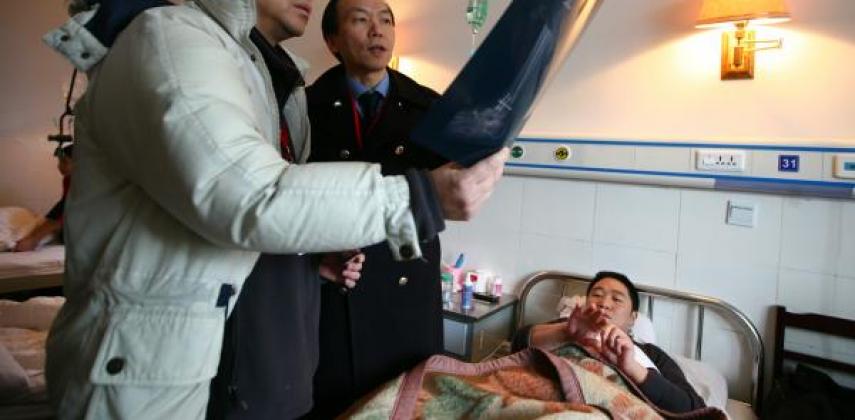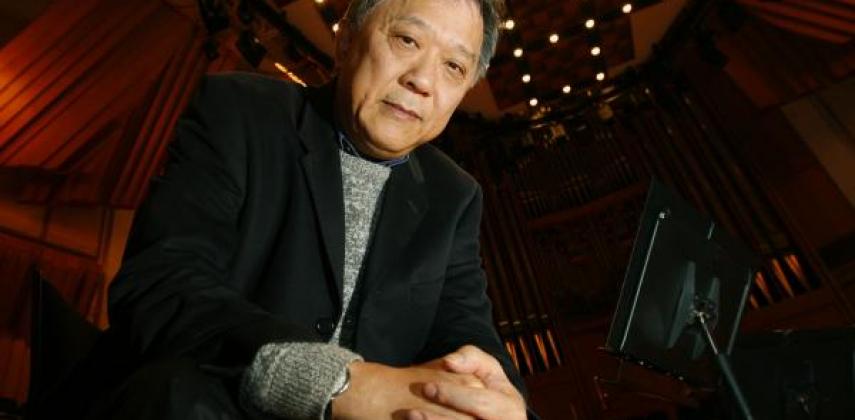“One of my mentors told me that orthopaedic [surgery] is practical when things are peaceful, but can be even more useful in times of disaster or war,” Ko says.
That proved to be true when a devastating earthquake struck Sichuan in mid-2008. The disaster killed thousands, and many more were injured and needed emergency surgery, with some survivors having to undergo amputations.
“There were so many patients,” he recalls. “The doctors and surgeons could only do their best in the first few days to save victims’ lives. It takes time to help people fully recover because there can be different types of problems afterwards, especially when patients need [artificial] limbs.”
Although it has been more than a year since the quake, Ko still spends about one week a month in Sichuan as a member of Red Cross Hong Kong’s international relief team. Working closely with the China Disabled Persons’ Federation, Hong Kong medical team members are continuing to provide treatment and follow-up services from a base in Deyang. So far, they have performed more than 400 surgeries to help as many people as possible.
“If patients have had to undergo amputations, it takes time for the wound to heal, and there may be some bone and scarring problems later on,” Ko explains. “That is why we are still doing the follow-up surgeries today.”
As a surgeon with a private practice in Hong Kong, he has a certain amount of freedom to take on voluntary work when and where he chooses. However, as a former director of professional services and human resources at the Hospital Authority, he is also pushing for other doctors and medical staff to offer their services when large-scale emergencies occur overseas.
“When there is any kind of disaster, broken bones are among the most common injuries,” he says. “I cherish the fact that I trained to be a surgeon since it has given me the ability to offer direct assistance to people in need.”
Ko studied medicine at University of Hong Kong before completing his qualifications in orthopaedic surgery over the next six years while working at Princess Margaret Hospital.
Not long after, though, he changed tack, accepting an offer to become part of the Hospital Authority’s management team, and wearing a different hat to deal with human resources and public affairs issues.
“Some people might think that it was a waste of my professional knowledge,” he says. “But there was a need to reform the department and I was willing to do my part.”
At the time, he was responsible for handling complaints from the public and dealing with potential legal problems. The role also involved acting as an interface between doctors and the public, which was both complicated and challenging. On the one hand, it was necessary to understand the details of specialist procedures in many different fields. On the other, it was essential to see what public expectations were.
Apart from external affairs, Ko also had to manage departmental staff, something which presented its own set of difficulties for someone with no background in human resources. “It was a big challenge,” he recalls. “That’s why I decided to take a part-time degree in the management of health administration.”
Even with this qualification, the severe acute respiratory syndrome (Sars) outbreak in 2003 was a major test. Medical staff were caught off-guard by the epidemic, but by drawing on the authority’s experience in handling the deadly bird flu outbreak in 1997 and co-ordinating with noted specialists, the crisis was eventually brought under control. “We had been working on the control of infectious diseases since 1998 and had been preparing, but of course Sars was something quite new,” he says.
Leaving the authority in 2005 and starting a private practice has given Ko more time to work with non-governmental organisations such as the Red Cross and the Hong Kong Anti-Cancer Society, and other patient groups. It has also allowed him time to delve into studies of the history and geography of southwest China and to take part in the Long March for Education, a fund-raising initiative organised by Sowers Action.
“I care about education in China, which is why I took part in this meaningful event,” he says.
- 1981 graduated from medical school
- 1986 became an orthopaedic surgeon
- 2001 appointed as the director of professional services and public affairs of the Hospital Authority
- 2004 appointed to the position of director of professional services and human resources
- Ko is now the director of Red Cross Hong Kong and chairman of the Anti-Cancer Society
Stepping up
Associate consultant
HK$80,485 to HK$92,720
Six years or more
Resident*
HK$42,175 to HK $83,370
*Upon attaining the entry qualification requirements
Source: Hospital Authority





